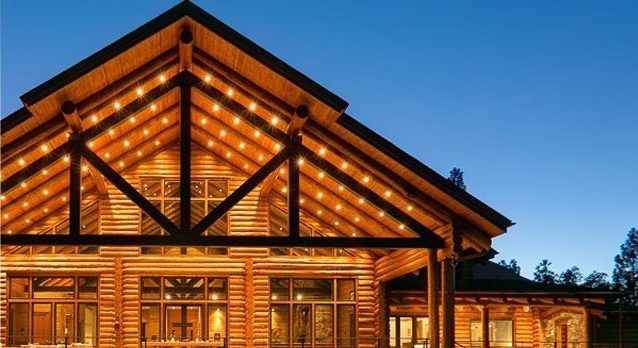What Is a Roofer?
Roofers are tradespeople who repair and install the roofs of residential and commercial buildings. Roofers also provides siding and cladding services. They may be self-employed or work as part of a roofing company.
Most roofers specialize in a specific type of roof construction. They use a wide variety of tools and techniques to perform their duties. They are often required to wear a hard hat and protective eyewear.

Roofers are skilled tradespeople who specialize in repairing and installing the roofs of buildings. They work with various materials, including shingles, asphalt, and metal. They also perform other related tasks, such as laying insulation and vapor barriers. Often, they collaborate with other construction professionals to ensure the work is properly sequenced and integrated. They may also interact with customers, addressing questions and concerns.
Roofers work on residential, commercial, and industrial projects. They use many tools and equipment to complete their jobs, including hand and power tools, electric power saws, drills, and scaffolding. In addition, they must adhere to all safety and regulatory standards while working at heights. They are also expected to perform routine maintenance and repairs on their tools.
While roofing is rewarding, it can be dangerous and physically challenging. Many roofers spend much time climbing, bending, kneeling, and working at high elevations. These factors can lead to back injuries, so roofers need to follow all safety regulations. In addition to following safety rules, roofers must keep up with the latest roofing techniques.
Working as a roofer can be a rewarding career for individuals who enjoy physical, athletic, and mechanical tasks. This career is suited for independent, stable, and honest individuals. It can also be a good fit for people who enjoy work that is not stressful and want to make a difference in the community.
Many roofers work as part of a team and must have excellent communication skills. They are also required to attend training regularly to maintain their skills. In addition to on-the-job training, many roofers must pass a written exam and gain a journeyperson certificate. In Canada, this process takes four 12-month periods and requires 5,860 hours of on-the-job training, three six-week technical training, and a final certificate exam. Some provinces and territories offer secondary school apprenticeship programs that allow students to combine their studies with the on-the-job training needed for a career as a roofer or shingler.
Roofers who work as self-employed roofers can earn a high income and benefit from having their own business. However, they must invest time and money in marketing their services. This includes getting a website, logos, business cards, and a signed vehicle with the company name and contact details. Additionally, they will need to make sure that their insurance is adequate.
Whether they are working on residential or commercial properties, self-employed roofers need to have Public Liability Insurance. This is because, as with the rest of the construction industry, there is always the risk that someone could be injured or their property damaged while a roofer works on their premises. In addition, self-employed roofers should also ensure that their policy covers financial loss in the event of a fire.
Many roofers also use several specialist tools and equipment to complete their jobs. Some even offer a 24-hour emergency service for customers who need to repair leaking roofs. In this case, they must ensure they can provide cover at short notice, as customers may only be able to spend a little time looking for a roofer and may telephone the first one they find.
To become a roofer, you will need occupationally relevant qualifications and experience. You can gain these through college courses, apprenticeships, or on-the-job training. You will also need a Construction Skills Certification Scheme (CSCS) blue skilled worker card to work on construction sites. Additionally, you can take a professional development program to improve your skills and learn how to run a roofing business.
As a self-employed roofer, you must register your business and obtain a tax or contractor’s registration number. This will help you understand your work’s scope and set up a budget. Additionally, you must register your business to be eligible for some types of government contracts.
You must register your business for a bank account and credit card for work-related expenses. Writing your business with your local chamber of commerce is also good. You can also use accounting software like QuickBooks and hire an accountant to keep track of your finances.
Roofers install, repair, and replace the roofs of buildings. They use a variety of materials, including shingles and metal. They also assess and inspect roof conditions. They can work on both commercial and residential properties. They may need to climb ladders to reach the roof of a building and are at risk of falling from heights. However, many states have safety measures in place to prevent these falls.
A roofer’s job requires them to be physically fit and balanced. They must be able to lift heavy objects and stand for long periods. They also need to be able to work in extreme weather conditions. Some roofers, such as Curt, prefer to take breaks during the hottest part of the day to avoid heat stress.
The job can be rewarding if you have the right skills and attitude. You will need to be responsible and dependable, and you must meet deadlines. A roofer must also be able to work well with other construction workers. This includes collaborating with other professionals, such as carpenters and electricians. In addition, you will need to have excellent customer service skills to communicate with customers.
Some roofers choose to be self-employed and run their roofing businesses. They must acquire their insurance and keep up with changing safety regulations. They also must spend a lot of time training and developing their skills. Depending on the climate, they might have to work year-round to keep up with demand.
Roofers often have to travel between jobs. They must have reliable transportation and a truck to carry their tools. They also need to have a valid driver’s license. In addition, they must complete extensive safety training every year to stay up-to-date on their skills and knowledge. While the pay for a roofer is generally less than that of other construction trades, it can be quite competitive in some areas. Moreover, the skills learned by roofers can be a stepping stone into other areas of the construction industry. For example, they can become project managers or estimators.
If you are a roofer, union membership is an excellent way to ensure you receive fair wages and benefits. Many union members also have the opportunity to participate in ongoing education and training programs. In addition, unions often have their own health and safety programs to help protect workers. They can negotiate with employers to establish good working conditions and ensure all employees are treated equally.
Union members also have the right to be accompanied by a trade union representative at disciplinary or grievance hearings. They also have the right to consult with their union about redundancies and transfers of business operations. They can also bring private legal action if they are denied these rights.
Moreover, working as a union member gives you more buying power in the marketplace with benefits like a low-interest MasterCard, free and discounted legal services, a competitive loan program, mail-order prescription drugs, and consumer goods and services discounts. Additionally, union members are eligible for a variety of scholarships. However, there are some restrictions on eligibility for these benefits.
Several other benefits come with being a union member, including the ability to work for more than one employer and the ability to join a local chapter. Unions also provide training and apprenticeship programs and are involved in cooperative labor-management research and educational efforts. They also negotiate with contractors on behalf of their members.
Working as a union roofer can be rewarding and challenging at the same time. The main responsibility is to complete the work negotiated by your union, and this involves traveling to job sites, ensuring each roof is built or repaired correctly, and helping other members as needed. In addition, union roofers are expected to pay union dues and may have additional responsibilities, such as participating in a strike against an employer who violates their contract.
Those interested in becoming union roofers should take high school classes focusing on construction math and building shops. They can also apply for an apprenticeship with Local 96, and the union will teach them the basics of the trade. These apprenticeships are a great way to learn the business and earn money while learning it.


